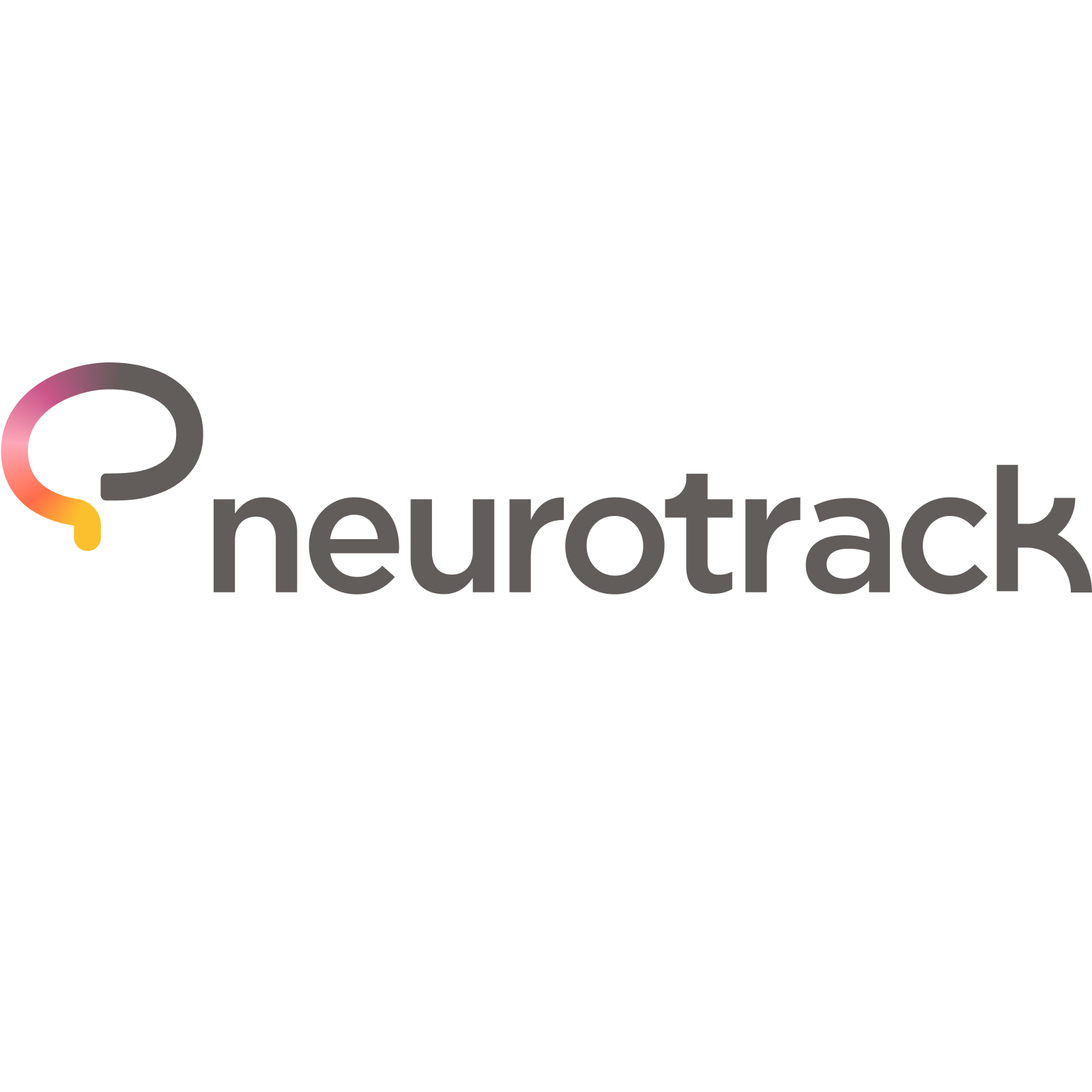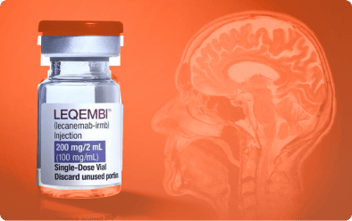

Neurotrack CEO and Co-Founder, Elli Kaplan, recently sat down with Joanna Strober and Dr. Mindy Goldman of Midi Health, a comprehensive virtual care clinic for women at midlife, to discuss the intersection of women’s brain health, Alzheimer’s disease, and the hormonal changes women experience around menopause.
Watch the video, or read on for the recap.
Women are disproportionately affected by Alzheimer's. What is the size of the problem and what health concerns do you hear from women about in midlife?
Elli: I think many people don't really understand the scope of the problem for women. Roughly two thirds of the people over the age of 65 who have Alzheimer's are women. Age is a factor as women on average live longer, but there are other risk factors. For example, more women in midlife are caregivers, whether it's for children, spouses or older aging parents, and the stress of that, and the lack of being able to take care of themselves can contribute to the risk for Alzheimer's. But we also know there's a hormonal component to it. We often hear women asking the question, “Is it brain fog from menopause or is it Alzheimer’s?”
Joanna: The number one reason women come to us is hot flashes and night sweats. But the number two concern is they have “brain fog.” Many women when they reach midlife, including myself, experience brain fog moments, such as forgetting someone’s name or where they parked their car and fear it could be the onset of Alzheimer's. It can be scary. I was quite convinced in my mid-40s that I was getting Alzheimer's. For me, once I started taking hormone replacement therapy the brain fog and forgetting names went away. And there is some research recently that seems to indicate that estrogen could be related, certainly to certain types of Alzheimer's.
What is the role of hormone replacement therapy broadly, and also the role of hormones through the lens of brain health?
Dr. Goldman: Historically, there's been a lot of controversy about when and how women should use HRT and whether it should be used for prevention of disease or just treatment of symptoms. Currently, HRT is mainly used to treat menopausal symptoms such as hot flashes, night sweats, sleep difficulty, mood changes, brain fog, vaginal dryness, sexual dysfunction and other conditions. We know that estrogen therapy is also good for protection of bone loss. We've learned a lot about hormone therapy in the past 20 years and prescribing practices are different now.
The relationship between hormones and brain health has long been a subject of interest, considering how they may affect the incidence of dementia or as a treatment for dementia. Studying this connection is challenging due to the secondary effects of menopause that can influence brain health. Sleep disturbances, stress and mood changes are common among menopausal women, and can adversely affect overall brain health. For example, depression is a risk factor for cognitive loss and we know that there are mood changes that occur at the time of menopause. It's not that menopause causes depression, but a mood disorder can affect your overall brain health. There’s a lot of potential direct effects from estrogen on brain health that we are beginning to understand as well as many secondary and indirect effects on brain health.
Many people have concerns about the linkage of HRT to cancer. What should people know about HRT?
Dr. Goldman: A common concern among women is that hormone use increases the risk of breast cancer. This fear stems partly from the Women's Health Initiative (WHI) trial, which focused on whether hormone therapy would prevent heart disease. The study was stopped early due to the finding that hormones don’t protect against heart disease, and surpassed the threshold for breast cancer. The perception that HRT causes breast cancer persists today and has done a disservice to women.
Follow-up research revealed that the increased risk was primarily associated with the combination of estrogen and a specific type of progesterone used in the WHI called medroxyprogesterone acetate. The natural bioidentical formulations of progesterone that we use today have not shown an increased risk in European studies. In addition, women that were given estrogen alone statistically had a lower risk of breast cancer and dying from breast cancer. Current data also indicate that women with a family history of breast cancer can safely use HRT without further increasing their risk. Our understanding of HRT has evolved, and the current type of hormone therapy we use today does not cause breast cancer or likely increase the risk of breast cancer. Hopefully this provides women with greater reassurance regarding the use of HRT and the association with breast cancer risk.
There is some research suggesting the preventive aspect of estrogen on brain health and Alzheimer’s. What is the research showing and what is the “timing hypothesis?”
Dr. Goldman: Historically, studies on estrogen's role in preventing and treating dementia have yielded mixed results. The Women's Health Initiative showed that starting HRT at a later age, the average age was 63, was associated with a higher risk of cognitive loss associated with the use of hormones. However, more recent studies are examining HRT and the timing of HRT and its impact on modifying dementia risk, particularly in high-risk groups like individuals with APOE, a genetic marker for dementia. It appears that initiating HRT earlier in genetically susceptible individuals may modify risk, while starting it later may not have the same effect. This is suggestive of what we know about cardiac risks. In the Women’s Health Initiative, the subgroup of women who started hormones within 10 years of menopause and under age 60 were protected against heart disease but starting them late did not offer protection.
This has led to the "timing hypothesis," which says that the risks and benefits of hormones differ depending on the age of the patient and the years since menopause. The use of HRT in younger women may have drastically different effects than for women who choose to start hormones after a long gap of at least 10 years. So, it seems that there may be a critical window to start HRT, similar to heart disease, and further research will shed light on this area.
Elli: Your points highlight the need for more funding in women's health in this area and others. For example, the role of certain weight loss drugs, such as Ozempic, that target risk factors like obesity and diabetes, which not only may impact cardiovascular health but also may impact brain health. In addition, now that HRT may play a role in the arsenal of tools to manage risk for Alzheimer’s, there’s a generation of Baby Boomer women turning 65 who didn’t use it due to the concerns for breast cancer and may have missed a preventative measure for a host of conditions.
Dr. Goldman: It’s not just Baby Boomer women who missed out. Any physician that has trained in the last 20 years may not know much about HRT because of the negative bias. It's going to take a while before we start seeing more women realizing the benefits of HRT from both symptomatic improvement to prevention of diseases like osteoporosis and maybe even dementia.
What are some of the challenges, from health systems to patients, in addressing the issues of menopause and cognitive concerns?
Elli: As we roll out to large provider networks and health systems, we find that primary care doctors largely aren’t testing because they haven’t had great tools. That’s what we are trying to facilitate with our three-minute cognitive screening. It's designed specifically to fit within the primary care setting. We also find that patients and providers in primary care are not being proactive about discussing cognitive concerns.
Joanna: Our patients are nervous that something is going on because they feel different than before, so they're coming with a lot of questions including cognition concerns. Our goal is to give them the best guidance on how we can help them ameliorate some of their symptoms.
Dr. Goldman: I think many people come to us because they haven't gotten the answers from their other providers. Our role is to not just treat patients, but also to help educate them with resources, and other providers as well. We reach out to patients as well as other providers to help take out some of the biases, fear or misinformation that exists.
How do gender, sex and other demographic differences impact care as well as research on women and Alzheimer’s disease?
Dr. Goldman: There’s a big gap in understanding the sex and gender differences in so many different diseases. In brain health, it is huge. Cardiac disease is ahead of the curve in understanding differences. We know that heart disease and its risk factors manifest differently in women than men. We are now beginning to learn that dementia and its risk factors manifest differently as well. We can't just study it in men and presume that it is going to be the same for women. We really need to start seeing an emphasis on not just menopause and hormones, but all the different ways that sex and gender differences may affect disease. The more we can understand that, the better we'll do to come up with more effective treatments.
Elli: In addition to sex and gender differences, we also know that Black Americans, Hispanic Americans, and people at different socioeconomic levels are disproportionately impacted by Alzheimer's disease. Many people don't realize that historically, the tests assessing Alzheimer's disease were developed and standardized on largely well-educated white men. We're missing a lot of women, Black Americans, Hispanic Americans and other underrepresented groups when it comes to screening for Alzheimer's disease. At Neurotrack, we have addressed this by designing our tools to be agnostic to race, culture, education level, and gender.
What can women do to protect their health and their cognition?
Elli: We now know that what's good for your heart is good for your brain. And the way we like to think about it is that what's good for your brain is also good for your heart. There's a protocol called the FINGER protocol, which is well established science around the role that diet, exercise, managing sleep, managing stress, being cognitively and socially engaged can really play in helping you to manage your risk for Alzheimer's disease. So, integrating healthy lifestyle choices into your day-to-day life can help, such as a Mediterranean diet, a mix of cardio exercise and strength training - strength training is particularly important for women as they get older. And if they're not on HRT as it relates to bone density and balance, they should think about it.
Dr. Goldman: The vast majority of women in perimenopause and menopause will have some sort of symptoms, even if they don’t have hot flashes or night sweats. However, if providers really start asking, women usually have some sort of symptoms. It is worth having a conversation about whether hormones would be beneficial or not. It may not be for everyone as some people can't or shouldn't take hormones, like people with hormone positive breast cancer. But in any case, HRT treatment should be individualized. Even when people are past that gap, that 10-year window [after menopause], it doesn’t mean that it’s an absolute that they can’t take HRT. There are plenty of people in their 60s that we may start on HRT, and that might actually help their brain health. Whether that's a secondary effect or a primary effect, we don't know. All of the things to maintain a healthy lifestyle, pleasure activities, mindfulness, things to alleviate stress, are also important for women going through the perimenopause and menopause transition.
This conversation has been edited for clarity and condensed for reading. The full transcript can be found HERE.
About the speakers:
Joanna Strober:
Joanna Strober is CEO and Co-Founder of Midi Health. She serves as Advisor at Flourish Labs. Previously she was Chief Executive Officer and Co-Founder of Kurbo Health, which she sold to Weight Watchers. Prior to founding Kurbo, she worked as an investor at Sterling Capital Management and Bessemer Venture Partners.
Dr. Mindy Goldman:
Dr. Mindy Goldman is an OBGYN by training and is Chief Clinical Officer at Midi Health, helping to develop the protocols for clinical care and supervising the practitioners.
Prior to Midi Health, she had been on the faculty at UCSF for 30 years, with a specialty in managing women's health issues for people who have either had cancer or high risk for cancer. Dr. Goldman is now part time at UCSF.
About Midi Health:
Midi Health is the only comprehensive virtual care clinic for women navigating midlife hormonal transition. Midi supports women with expert care and hormonal and non-hormonal medications, supplements, lifestyle coaching, and vital preventative health guidance. All services are covered by insurance, and conveniently accessible through telehealth visits and 24/7 messaging. With care designed by experts, scaled by technology, and delivered by compassionate clinicians, Midi fills an immense gap in the healthcare system, and unlocks women's potential at midlife. To learn more, visit www.joinmidi.com.
Elli Kaplan:
Elli Kaplan is the CEO and Co-Founder of Neurotrack, a Silicon Valley-based digital health company on a mission to transform the diagnosis, treatment and prevention of cognitive decline and related diseases like Alzheimer’s disease. Elli leads Neurotrack to develop a solution that can detect the risk of cognitive decline before symptoms appear, giving people an opportunity to take action towards maintaining their cognitive strength. Under Elli’s leadership, Neurotrack is pioneering the category of accessible cognitive health through easy access testing and behavioral intervention.
Elli’s previous experience includes more than two decades in the public and private sectors, including positions at the White House, the State and Treasury Departments, and the United Nations Development Program. She also held positions with AIG, Goldman Sachs and multiple startups, and has a BA from Mount Holyoke College and MBA from Harvard.




